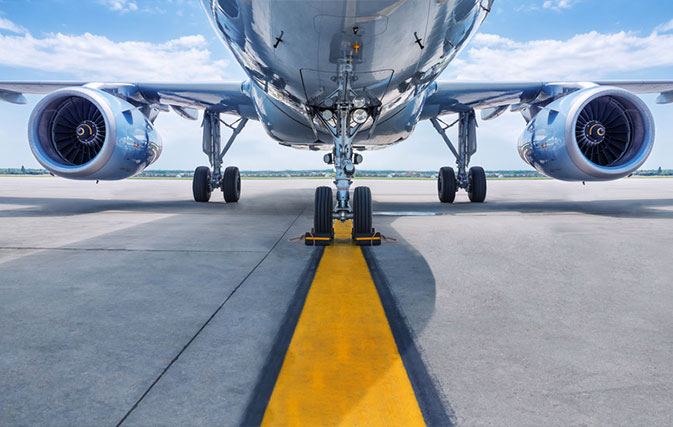TORONTO — IATA’s new guidelines for airport and airline operations offer the clearest picture yet of what air travel could look like as the world emerges from COVID-19 travel restrictions.
IATA says its newly released Biosecurity for Air Transport: A Roadmap for Restarting Aviation offers a roadmap for airlines and airports looking to nail down best practices for a post-COVID-19 world of global travel.
Alexandre de Juniac, IATA’s Director General and CEO, says: “There is no single measure that will reduce risk and enable a safe re-start of flying. But a layering measures that are globally implemented and mutually recognized by governments can achieve the needed outcome. This is the greatest crisis that aviation has ever faced. A layered approach has worked with safety and with security. It’s the way forward for biosecurity as well.”
The guidelines come as Prime Minister Justin Trudeau announced an extension of the Canada-U.S. border closure, to June 21. “We need to do more to ensure that travellers who are coming back from overseas or from the U.S. are properly followed up on, properly isolated and don’t become further vectors for the spread of COVID-19,” Trudeau said today.
Trudeau added: “Once we get to the point that non-essential travel picks up again, in the coming months, we will need to have strong measures in place and we’re looking at those closely.”
Here are IATA’s proposed guidelines, which IATA says should be temporary, regularly reviewed and replaced when more efficient options are found (or removed should they become unnecessary) …
PRE-FLIGHT
IATA says it can see the need for governments to collect passenger data in advance of travel, including health information, “which should be accomplished using well-tested channels such as those used for eVisa or electronic travel authorization programs.”
AT DEPARTURE AIRPORT
Access to the terminal building should be restricted to airport / airline workers and travellers (with exceptions being made for those accompanying passengers with disabilities or unaccompanied minors)
- Temperature screening by trained government staff at entry points to the terminal building
- Physical distancing through all passenger processes, including queue management
- Use of face coverings for passengers and masks for staff in line with local regulations.
- Self-service options for check-in used by passengers as much as possible to reduce contact points and queues. This includes remote check-in (electronic / home printed boarding passes), automated bag drops (with home printed bag tags) and self-boarding.
- Boarding should be made as efficient as possible with re-designed gate areas, congestion-reducing boarding priorities, and hand luggage limitations.
- Cleaning and sanitization of high touch areas in line with local regulations. This includes wide availability of hand sanitizers.
IN-FLIGHT
- Face coverings required for all passengers and non-surgical masks for crew
- Simplified cabin service and pre-packaged catering to reduce interaction between passengers and crew
- Reduced congregation of passengers in the cabin, for example by prohibiting queues for washrooms.
- Enhanced and more frequent deep cleaning of the cabin
AT ARRIVAL AIRPORT
- Temperature screening by trained government staff if required by authorities
- Automated procedures for customs and border control including use of mobile applications and biometric technologies (which have already proven tack record by some governments)
- Accelerated processing and baggage reclaim to enable social distancing by reducing congestion and queuing
- Health declarations and robust contact tracing are expected to be undertaken by governments to reduce the risk of imported chains of transmission
POTENTIAL ‘GAME-CHANGERS’
Barring the best-case scenario, i.e. the discovery of a vaccine for COVID-19, IATA also said that two ‘game-changers’ that could lessen or eliminate many of the above guidelines could be scalable, accurate and efficient COVID-19 testing, and/or immunity passports. IATA says would support the development of immunity passports to segregate no-risk travellers, ‘at a time when these are backed by medical science and recognized by governments’.
OPPOSITION TO QUARANTINE MEASURES
IATA also reiterated its opposition to social distancing on board aircraft and quarantine measures on arrival.
Instead of quarantine measures, IATA advocates temperature checks and contract tracing, which work toward the same goal of containment and risk management, without crippling the air and travel industries. “Temperature screening reduces the risk of symptomatic passengers from traveling, while health declarations and contact tracing after arrival reduce the risk of imported cases developing into local chains of transmission,” says IATA.
IATA also reconfirmed its stance against social distancing on board (i.e. leaving the middle seat open). There’s no need to leave the middle seat open when passengers and crew are wearing face coverings, plus other on-board health and safety protocols (e.g. everybody is front facing, air flow is from ceiling to floor, seats provide a barrier to forward/aft transmission, and air filtration systems that operate to hospital operating theatre standards).
“THE VITAL ELEMENT IS COORDINATION”
IATA says it is reaching out to governments with its guidelines, in support of the COVID-19 Aviation Recovery Task Force (CART) of the International Civil Aviation Organization (ICAO).
“The Roadmap is the industry’s high-level thinking on safely re-starting aviation. Timing is critical. Governments understand the importance of aviation to the social and economic recovery of their countries and many are planning a phased re-opening of borders in the coming months. We have a short time to reach agreement on the initial standards to support safely reconnecting the world and to firmly establish that global standards are essential to success. This will change as technology and medical science advances. The vital element is coordination. If we don’t take these first steps in a harmonized way, we will spend many painful years recovering ground that should not have been lost,” said de Juniac.

